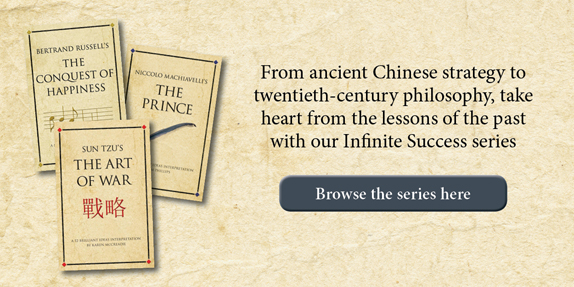Tony Blair’s sticking to his story
3 September 2014 by Catherine Holdsworth in Book publishing, Business and finance, Current events
We were all as baffled as the rest of the world to wake up this morning and find out that Tony Blair has won the GQ Award for philanthropist of the year. We’re sure the prestigious award will look just lovely in his million-pound mansion, though he should probably leave space for his imminent receipt of the Nobel Peace Prize.
Whatever we think, he’s clearly convinced the folks at GQ that he’s the real deal. Perhaps Tony is just not telling the rest of us everything about his missions in the Middle East, where he can hardly be hailed as a hero and saviour. But GQ’s woman of the year, Kim Kardashian, will undoubtedly be able to give him some tips on how to look good for the cameras while the world reels in confusion at his latest achievement.
There’s something … Machiavellian about Blair’s rise (and continued rise) from humble Prime Minister to all out celebrity philanthropist saving the Middle East. Yet, as long as he sticks to his original story, surely he is out of danger of being accused of having acted in haste in 2003 in Iraq.
Tim Phillips’ modern interpretation of Machiavelli’s The Prince, points out the value of taking control of your own story and using PR to its maximum effect. It’s all about the spin, and clearly something that Tony has learned well from. He could yet change our minds if he sticks to his guns:
Great leaders through the years have understood the value of propaganda. Machiavelli knew equally well just how important it was to control the way the story was told. ‘Nowadays, for all rulers … it is more necessary to satisfy the people than the soldiers, because the people are more powerful,’ he reminds us.
On 9 April 2003 a large statue of Saddam Hussein in Baghdad’s Firdus Square directly in front of the Palestine Hotel – where the world’s journalists were staying – was dragged to the ground by a furious mob of Iraqis, aided, after long struggles, by an American tank. The citizens chopped off the statue’s head and dragged it through the streets. A marine covered the face of the statue with an American flag. All over the world people watched broadcasts of Iraqis taking off their shoes and using them to slap the fallen statue of Saddam. For days the newspapers and magazines carried the images, too.
But were they the truth? We may never know for sure. Since the event, there have been many reports of the involvement of the US Army in the planning of the ‘spontaneous’ event. The Los Angeles Times reported that a US Marine Colonel had masterminded the planning, and US Army loudspeakers had encouraged the crowd of citizens to join in.
Whatever the exact level of planning, it was a masterpiece of propaganda. It was a highly symbolic event; it happened in exactly the place that would guarantee the maximum level of publicity and it sent an emotional message that couldn’t fail to be understood.
Today, we’re all telling stories. People email, gossip, blog, text, instant message and chat. We have twenty-four-hour news channels that have to report something, even when there’s nothing to report. The average employee is spending sixty-five hours a year gossiping at work, according to a survey by the communications company Equisys. And then there are your suppliers, customers, investors, recruiters and advisors all doing the same about you. Viral marketing, as it is called, is simply word of mouth given a fancy title.
Stick your head above the parapet and someone’s going to review you, write a blog about you or organise a protest about you.
Someone’s going to control this story. If you’re in charge, it had better be you. Today it’s not just the military that uses propaganda; secretive companies like Strategic Communication Laboratories are confidentially employed by everyone from consumer products companies to the United Nations.
Get over the idea that propaganda equals bad. It can stop panic when there’s bad news and make sure more people hear the good news. This stuff doesn’t happen by chance. You need to plan it, exactly as you would any other part of your business.

